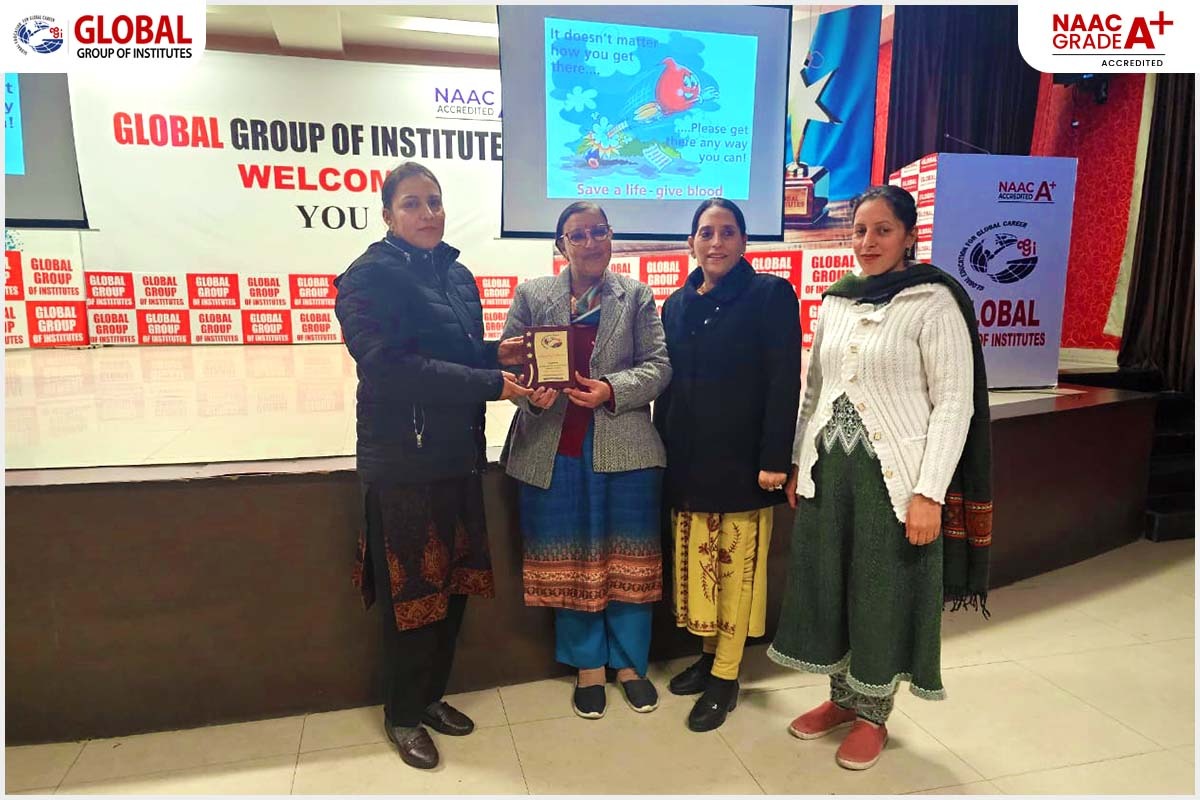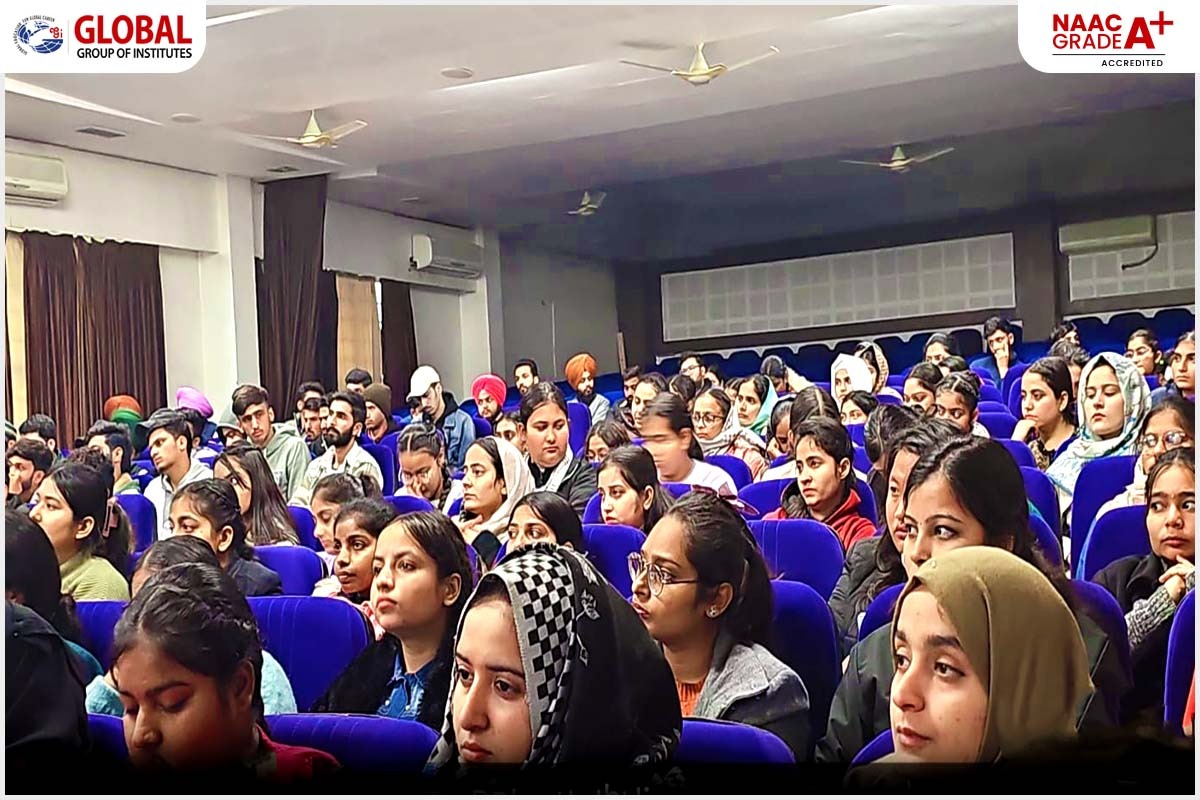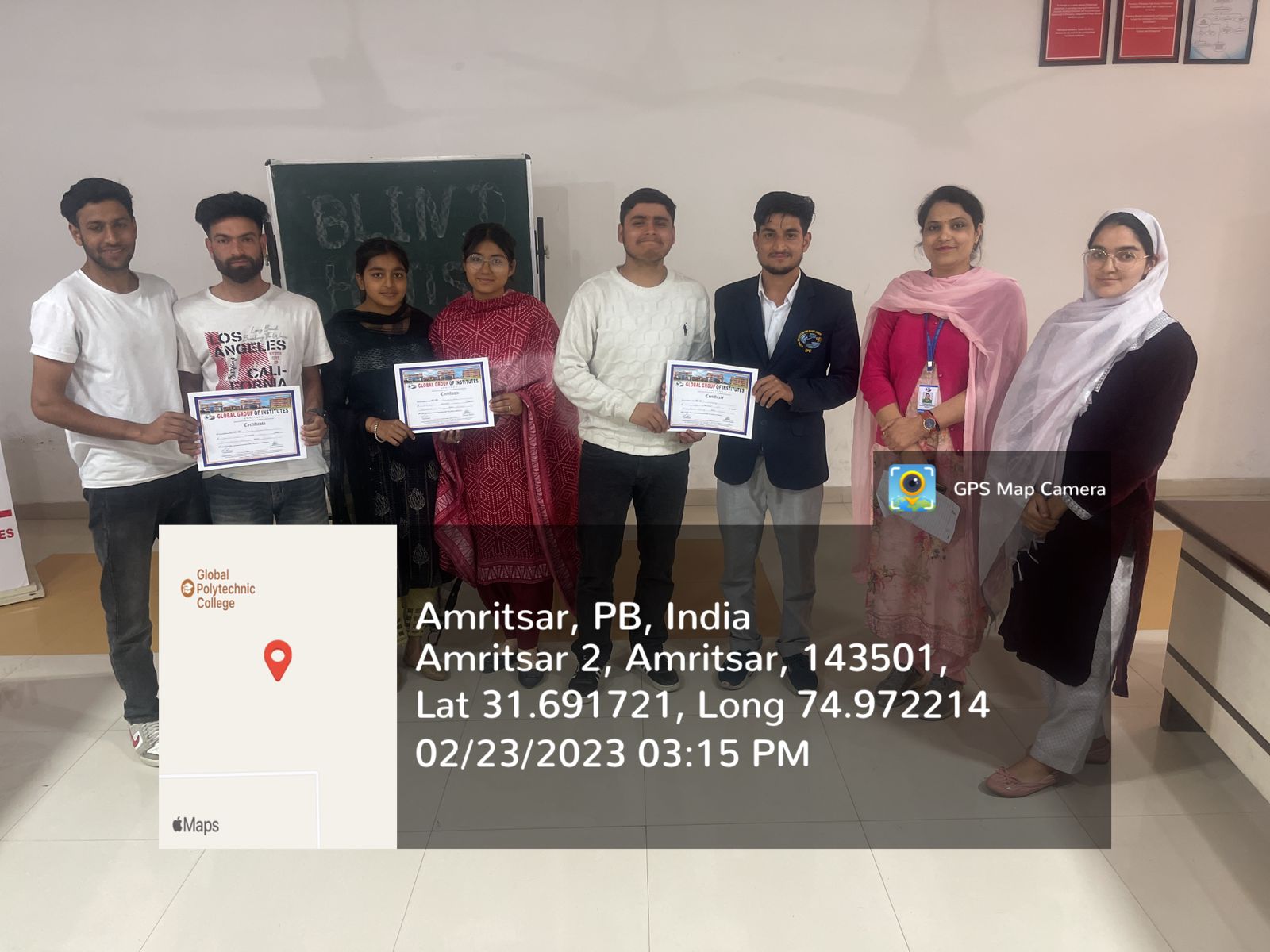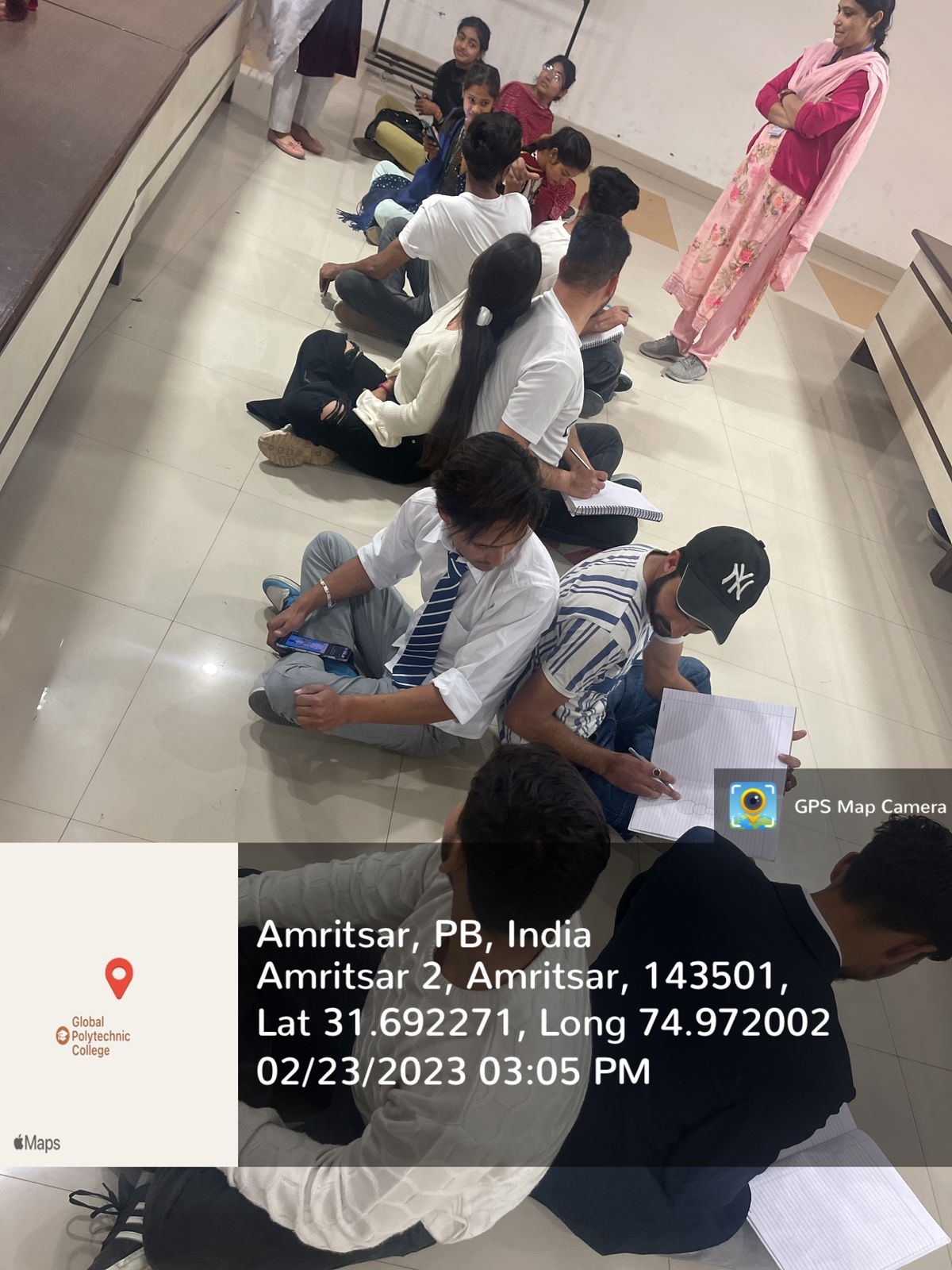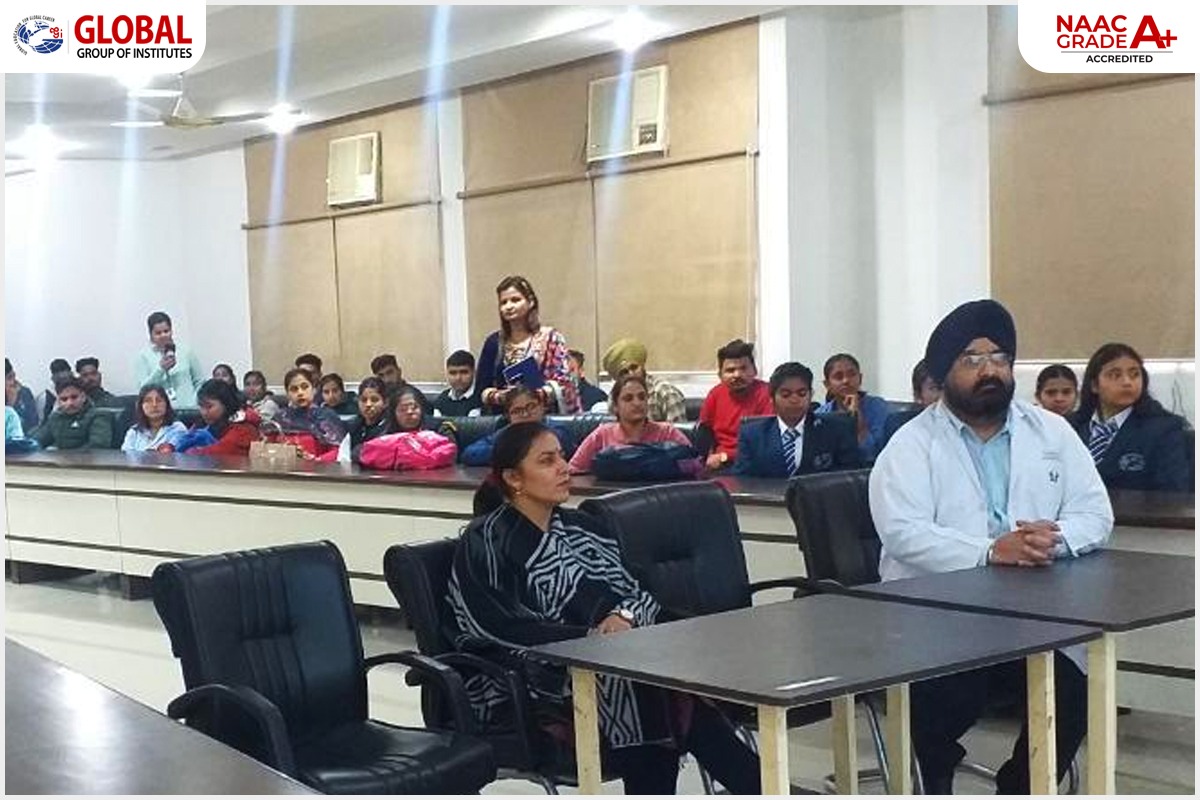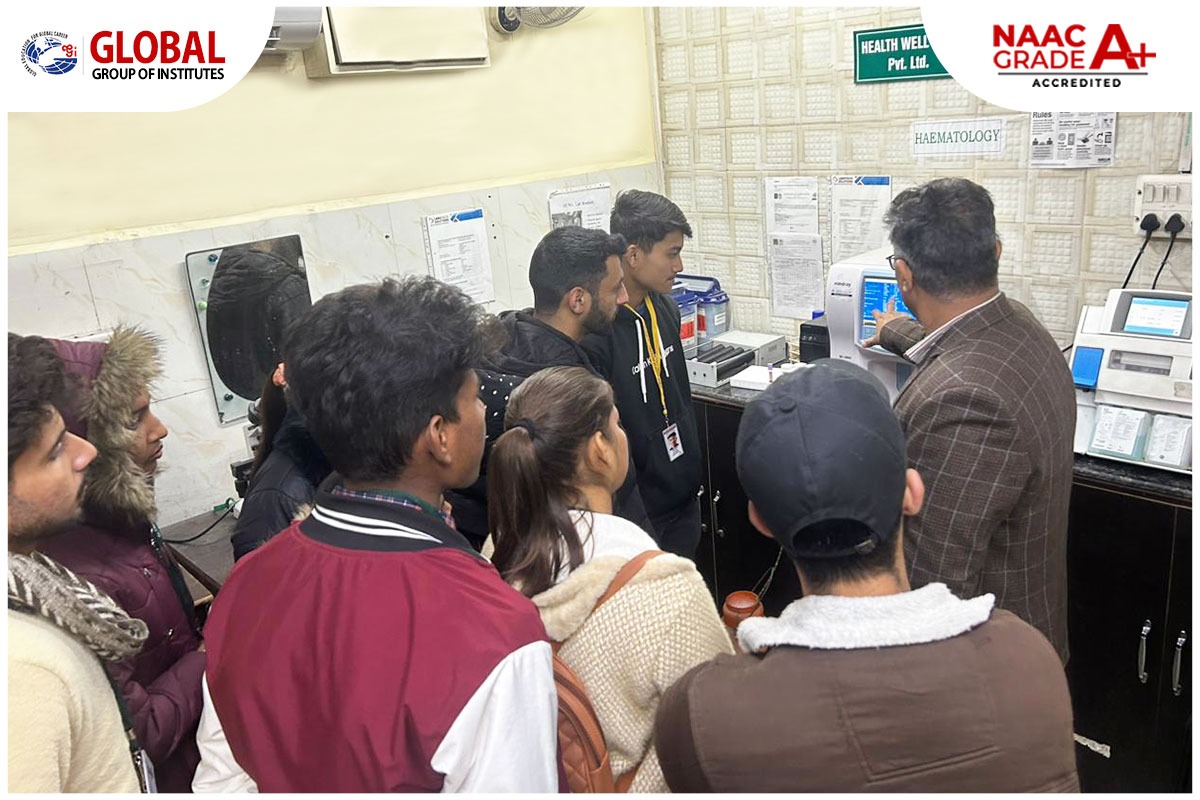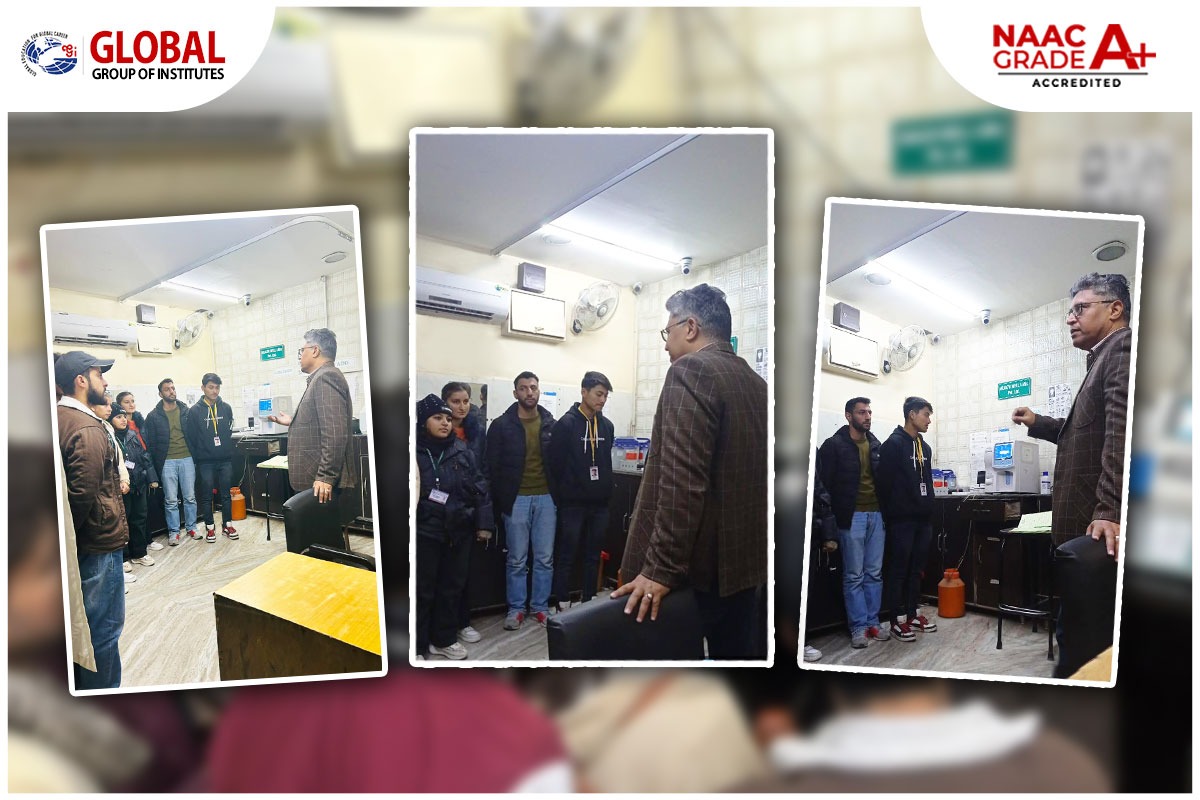B.Sc. (Medical Lab Sciences)
B.Sc. (Medical Lab Sciences)
B.Sc. in Medical Laboratory Sciences (MLS) is an academically focused program dedicated to preparing students for roles in healthcare that involve diagnosing, treating, and preventing diseases. This is achieved through the study and application of various diagnostic techniques including chemical, hematological, immunological, microscopic, and bacteriological analyses.
Course Offered and Eligibility Criteria
| Course Offered | Seats | Duration | Eligibility Criteria |
| B.Sc. Medical Laboratory Sciences | 60 | 4 years / 8 semesters | Candidates must have passed 10+2 with Physics & Chemistry as compulsory subjects and one subject from Mathematics/Biology from a recognized Board/University/Council. |
| B.Sc. MLS (Lateral Entry into 2nd Year) | – | 3 years / 6 semesters | Candidates must have passed a 3-year diploma in Medical Lab Technology with at least 50% marks in aggregate, or a 2-year Diploma in Pharmacy from an institution affiliated to PSBTE&IT/recognized Board/University/Council. |
VISION
To provide well trained diagnostic professionals by providing cutting edge knowledge in the field of Medical Lab Sciences and to ensure that the student experiences hands-on learning in each discipline of the laboratory and, under supervision, performs diagnostic tests.
MISSION
- To provide in-depth knowledge in biochemistry, hematological, immunologic, microscopic, mycology, parasitology, virology, histopathology, cytology, microbiology, serology, molecular biology and bacteriological diagnostic tests and procedures.
- To advance the profession of Medical Laboratory Science by training enterprising and adaptable individuals who will take the forefront in the changing environment of health care.
- To contribute to society through the pursuit of education, research, dissemination and application of knowledge.
- To Create a state-of-the-art academic ambience nurturing critical thinking and ability to adapt to the changes required by medical advances.
- To establish collaborations with the best laboratories of the country to provide the students a real working experience and training.
- To offer professional services that benefit society, integrating an entrepreneurial spirit, adherence to international standards, and the upholding of ethical values.
Objectives
- To cultivate Medical Laboratory Scientists with comprehensive knowledge and skills for conducting various laboratory analyses and tests crucial for patient diagnosis, treatment, and disease prevention.
- To ensure graduates are competent Medical Laboratory Scientists, capable of delivering high-standard laboratory practices across all spheres of medical laboratory sciences or related employment areas.
- To prepare graduates to function as informed professionals within an evolving healthcare system, equipped to evaluate and adapt their approach to medical laboratory science practice.
- To instill ethical, caring, and professional values in students, enabling them to serve patients and society effectively, whether independently or as integral parts of healthcare teams.
- To develop skills in critical observation and enquiry among students through placements in specialized units.
- To provide students with a robust understanding of current and future health issues, public health policies, and international health regulations, preparing them for a global healthcare environment.
Learning Outcomes
- Students will demonstrate entry level knowledge for a medical laboratory scientist.
- Students will evaluate clinical data and results by applying knowledge and skills gleaned from this program.
- Students will exhibit entry level psychomotor and clinical skills for a medical laboratory scientist.
- Students will model the professional traits of an entry level healthcare practitioner.
- Students will demonstrate competent written, oral, and visual communication skills, both as producers and consumers of information.
Program Outcomes (POs)
PO1: Laboratory Knowledge: Apply the knowledge of human anatomy, physiology, hematology, pathology, microbiology and biochemistry related to medical laboratory.
PO2: Problem Analysis: Identify, and analyze problems to arrive at substantiated conclusions using knowledge about different medical laboratory procedures.
PO3: Design/development of Solutions: Design solutions for complex diagnosis problems and design system components, processes to meet the specifications with consideration for the public health and safety, and environmental considerations.
PO4: Conduct Investigations of Complex Problems: Use knowledge including protocols, analysis and interpretation of data, and synthesis of the information to provide valid conclusions.
PO5: Modern Tool Usage: Create, select, and apply appropriate techniques, resources, and modern technology and laboratory tools.
PO6: The Lab Technician and Society: Apply reasoning informed by the contextual knowledge to assess societal, health, safety, legal issues and the consequent responsibilities relevant to the professional medical lab practice
PO7: Environment and Sustainability: Understand the impact of the professional lab technician in societal and environmental contexts, and demonstrate the knowledge of, and need for sustainable development.
PO8: Ethics: Apply ethical principles and commit to professional ethics and responsibilities of the medical lab practice.
PO9: Individual and Team Work: Function effectively as an individual, and as a member or leader in teams, and in multidisciplinary settings.
PO10: Communication: Communicate effectively with the laboratory community and with society (patient) at large. Be able to comprehend and write effective reports documentation. Make effective presentations, and give and receive clear instructions.
PO11: Management and Finance: Demonstrate knowledge and understanding of protocols and management principles and apply these to one’s own work, as a member and leader in a team.
PO12: Life-long Learning: Recognize the need for, and have the preparation and ability to engage in independent and life-long learning in the broadest context of technological change.
PROGRAM SPECIFIC OUTCOMES (PSOs)
PSO1: Students will be able to demonstrate theoretical knowledge and technical skills to ensure the accuracy of laboratory test results.
PSO2: Students will be able to communicate courteously and effectively with laboratory personnel, other health care professionals, patients and the public.
PSO3: Students will be able to demonstrate laboratory practice standards in safety, professional behavior and ethical conduct.
Career Prospects
Medical Laboratory Scientists play a critical role in healthcare by examining and analyzing body fluids, tissues, blood typing, microorganisms, screening, chemical analyses, and cell counts. They are pivotal in gathering the information essential for the diagnosis and treatment of various pathologies, conducting sampling, testing, analyzing, and reporting. With the healthcare sector’s growing emphasis and the rising demand for allied health professionals, the career opportunities for clinical laboratory professionals are projected to expand significantly, surpassing the average growth rate of other occupations.
| Scientific | Managerial | Educational |
| Hospital Lab Scientist | Lab Supervisor | Science Tutor |
| Pharmaceutical Scientist | Quality Assurance Manager | Medical Lecturer |
| Public Health Scientist | Sales & Marketing Manager | Lab Techniques Trainer |
| Research & Development | Operations Manager | Academic Coordinator |
| Clinical Trials Analyst | Compliance & Safety Officer | Online Course Facilitator |
| Diagnostic Technologist | Project Manager | Research Advisor |
| Biotech Innovator | Client Relations Manager | Workshop Organizer |
| Microbiology Specialist | Product Development Manager | Curriculum Specialist |
| Hematology Technician | Healthcare Consultant | Professional Development Instructor |
| Pathology Assistant | Business Development Manager | Education Program Director |
The B.Sc. (Medical Lab Sciences) at Global Group of Institutes aims to forge future healthcare leaders, equipping them with the essential skills and knowledge for a transformative impact in the medical and scientific community.
Medical Laboratory Scientists examine and analyze body fluids, tissues, blood typing, micro organisms, screening, chemical analyses, cell counts etc. of the human body. They play an important role in collecting the information needed for treating most pathology cases by sampling, testing, analyzing and reporting such investigations. Given the focus on the healthcare and the demand for allied health professionals therefore career opportunities for clinical lab professionals are expected to grow faster than the average of all other occupations.
Scientific: Work as Laboratory Scientists at hospitals, Pharmaceutical laboratories, Public Health laboratories, research & product development.
Managerial: Supervisor in laboratory, as consultant to laboratory medicine industry, Quality assurance companies, sales & marketing
Educational: As a Tutor/Teacher in laboratory medicine graduate program.
“Department of Medical Laboratory Sciences of the Pharmacy Wing organised an Expert Talk on the topic of “BLOOD DONATION” on 31st January 2024″
“MLS / OTT /RIT Department Organized the “ *Blind Artist ” Activity on 23rd Feb. 2022 in Pharmacy Department.”
TALK ON FATTY LIVER
The Department of Medical Laboratory Science organized a visit to Laboratory at Shoor Multi Super Specialty Hospital, Khazana Gate, Amritsar on 22nd December 2022.
One day value added course on ‘Introduction to MLS & Analytical Techniques used in Laboratory.’
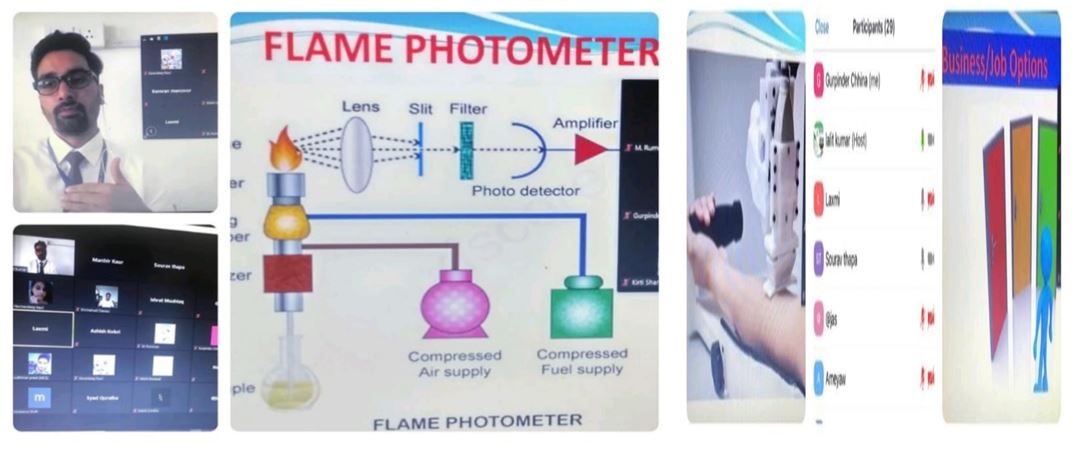 Department of MEDICAL LABORATORY SCIENCES organized a value added course on 30-10-2020 for the understudies, as these talks become a huge part of schooling. The discussion was passed on by Prof. Lalit Kumar, Head of Department of MLS TIMT, Jalandhar. The subject of talk was ‘Introduction to MLS & Analytical Techniques used in Laboratory. Prof. explained that how the Medical Laboratory Science Department is highly focused on laboratory organization, laboratory safety, basic laboratory analyzers, pre-analytical, analytical and post-analytical variables, quality control, calibration and analytical techniques for laboratory settings. All the understudies went to the discussion successfully and moreover cleared their inquiries concerning their outline.
Department of MEDICAL LABORATORY SCIENCES organized a value added course on 30-10-2020 for the understudies, as these talks become a huge part of schooling. The discussion was passed on by Prof. Lalit Kumar, Head of Department of MLS TIMT, Jalandhar. The subject of talk was ‘Introduction to MLS & Analytical Techniques used in Laboratory. Prof. explained that how the Medical Laboratory Science Department is highly focused on laboratory organization, laboratory safety, basic laboratory analyzers, pre-analytical, analytical and post-analytical variables, quality control, calibration and analytical techniques for laboratory settings. All the understudies went to the discussion successfully and moreover cleared their inquiries concerning their outline.
Total Number of Students were 40
One day value added course on “Laboratory Quality Management”
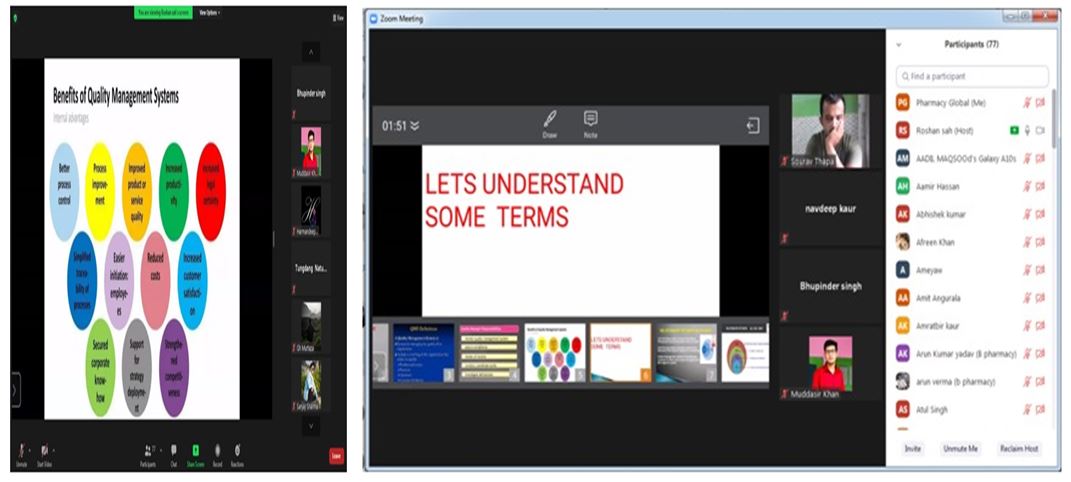 Department of Pharmacy and MLS organized a value added course on “Laboratory Quality Management” on 8-6-2021. Mr. Roshan Sah, a certified internal auditor and a scientific officer at SRL diagnostics who was the Expert Speaker for this webinar. In his interactive session, he gave detailed information about the Laboratory Quality Management which is one of the most important protocol to be followed these days. Mr. Sah also gave practical hands-on experience providing the students with the data sheets to be filled during an internal audit and cleared many doubts about quality control. At the end of this activity, participants learnt the importance of a quality management system and quality system essential elements. The webinar was followed by question answer session and it was a great success and well appreciated by the students and faculty members.
Department of Pharmacy and MLS organized a value added course on “Laboratory Quality Management” on 8-6-2021. Mr. Roshan Sah, a certified internal auditor and a scientific officer at SRL diagnostics who was the Expert Speaker for this webinar. In his interactive session, he gave detailed information about the Laboratory Quality Management which is one of the most important protocol to be followed these days. Mr. Sah also gave practical hands-on experience providing the students with the data sheets to be filled during an internal audit and cleared many doubts about quality control. At the end of this activity, participants learnt the importance of a quality management system and quality system essential elements. The webinar was followed by question answer session and it was a great success and well appreciated by the students and faculty members.
Total Number of Students were 67

